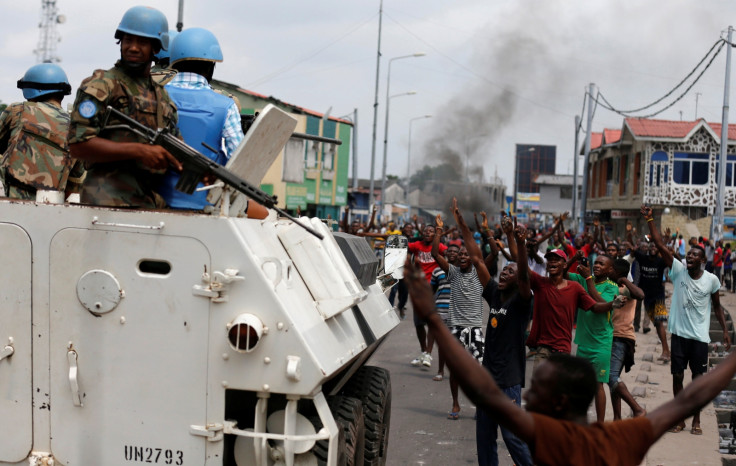DRC security forces killed 40 protesters in two weeks as Kabila was due to stand-down, says UN
Damning new report reveals that at least 917 people were arrested between 15 and 31 December 2016.
In a damning new report, the United Nations (UN) has revealed that at least 40 people, including five women and two children, were killed by security forces of the Democratic Republic of the Congo (DRC) between 15 and 31 December 2016.
The killings happened during events surrounding the date of 19 December 2016, marking the end of President Joseph Kabila's second and last constitutional mandate.
Prepared by the UN Joint Human Rights Office (UNJHRO), the UN peacekeeping mission to DRC (MONUSCO) and the Office of the UN High Commissioner for Human Rights (OHCHR ), the report details the Congolese state's "disproportionate use of force and the use of the Armed Forces of the Democratic Republic of the Congo (FARDC), to prevent civilians from protesting".
Why were Congolese people protesting?
The country faces a political impasse after it was clear that presidential elections originally scheduled for November 2016 would not take place, a move critics said was an attempt by President Joseph Kabila to try to hold on to power in Africa's largest copper producing country.
In protest against his remaining in office beyond this date, the main opposition political parties, including the Union pour la démocratie et le progrès social (UDPS), as well as coalition platforms such as the Rassemblement, launched several "ville morte" days throughout the country.
They also gave President Kabila warnings in the symbolic form of two "yellow cards" and a "red card", on 19 September, 19 October and 19 November 2016, respectively.
Some 40 people were killed as a result and at least 147 wounded, including 14 women and 18 children.
While the National Police (PNC) were in charge of crowd control operations during that period, FARDC soldiers, including those of the Republican Guard and the Military Police, were deployed to control crowds, functions for which they are not adequately equipped nor trained, the UN report published last night (28 February) found.
During that same period, at least 917 individuals, including 30 women and 95 children, were arrested by state agents throughout DRC.
"The actions by the Congolese authorities were executed through disproportionate and illegal restrictions of public freedoms, including the right to freedoms of expression, information and peaceful assembly, in contravention with both constitutional and DRC provisions," the report states.
"The UNJHRO raises serious concerns about the absence of measures taken against perpetrators of human rights violations committed in the DRC in recent months in relation to the political tensions around the electoral process, which contributes to a culture of impunity."
Because of what it described as a lack of access to several military facilities and camps as well as hospitals and morgues, UNJHRO experts estimate that the actual number of victims of violations may be higher than that presented in the report.
In its recommendations, the UN bodies called for the government to improve respect for fundamental human rights and freedoms, and urged for support in contributing to the development of an environment conducive to the holding of free, inclusive and peaceful elections in the DRC.
The DRC is on a political knife-edge after Kabila stayed in power after 20 December despite the expiration of his last constitutional term in office, and no progress has yet been made in relation to implementing a power-sharing deal deal struck on 31 December 2016, between Kabila's government and the opposition.

© Copyright IBTimes 2025. All rights reserved.






















